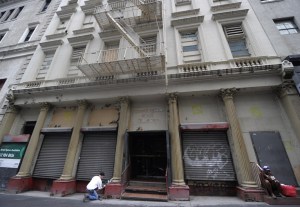 Real estate development in New York City is, by its nature, an act prone to conflict, pitting residents and developers on opposite sides of most construction site fences. We all live in close quarters; everyone has their own ideas of how the ever-changing physical city should evolve, particularly when a large development is proposed in your own neighborhood.
Real estate development in New York City is, by its nature, an act prone to conflict, pitting residents and developers on opposite sides of most construction site fences. We all live in close quarters; everyone has their own ideas of how the ever-changing physical city should evolve, particularly when a large development is proposed in your own neighborhood.
Developers who propose something out of scale or unexpected quickly see a rise in NIMBYism—Not In My Backyard, for those unfamiliar—as activists come out of the woodwork to find everything imaginable wrong with whatever condo tower or office building is planned for their neighborhood.
These NIMBY fights are engrained in the DNA of New York, and our public process for allowing development, while not without its flaws, gives NIMBYism a role, and through its structure (approvals from the City Council and mayor-appointed City Planning Commission), it answers the question of whether a development is right for New York City or not.
Enter the debate around the Islamic community center proposed near the World Trade Center site (the “Ground Zero Mosque”), which upends the structures set up to permit development in New York. In this case, the local community board is in favor of the project. The mayor is fully supportive, as is Council Speaker Christine Quinn. In short, the neighborhood, the community, and the New York City government are for it. In short, based on the questions we normally ask in New York City, the mosque should be sailing toward construction.
What has happened, however, is something unusual in New York’s story of development. The visceral reaction of cable TV and many conservatives outside of New York City has given rise to a “Not in Your Backyard” campaign, which has been pitted against the “Yes in My Backyard” vote from New Yorkers.
The mosque’s detractors might say they have a right to weigh in on the process—and inject influence—given that this is near ground zero, an area that has a place in the heart of the nation as a whole. Effectively, they would argue, this means ground zero’s ownership, and decisions about what gets developed in and around it, extend well beyond the people of New York City.
Indeed, the World Trade Center site is more than just a typical real estate project. But who is to say that even decisions on that property should be dictated by whatever chorus of critics decides to get loud and angry, let alone any decisions about any building within an undefined radius? (The mosque would be two blocks away.)
The foolishness about the entire debate, of course, is that there is no compelling reason to be distracted by the peripheral yelling and screaming. New York City’s land use laws are set up to listen to New York City, and if the mayor and the Council and the community board are all in agreement, then, at this point, there isn’t any window for those on the outside to enter and change the course.



